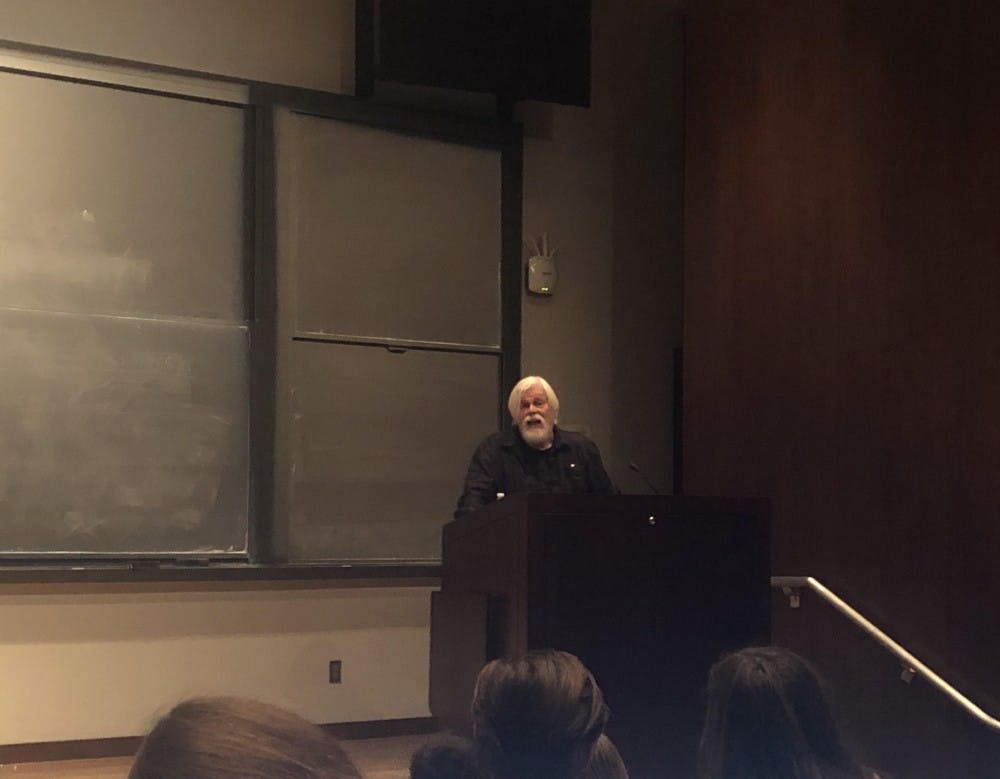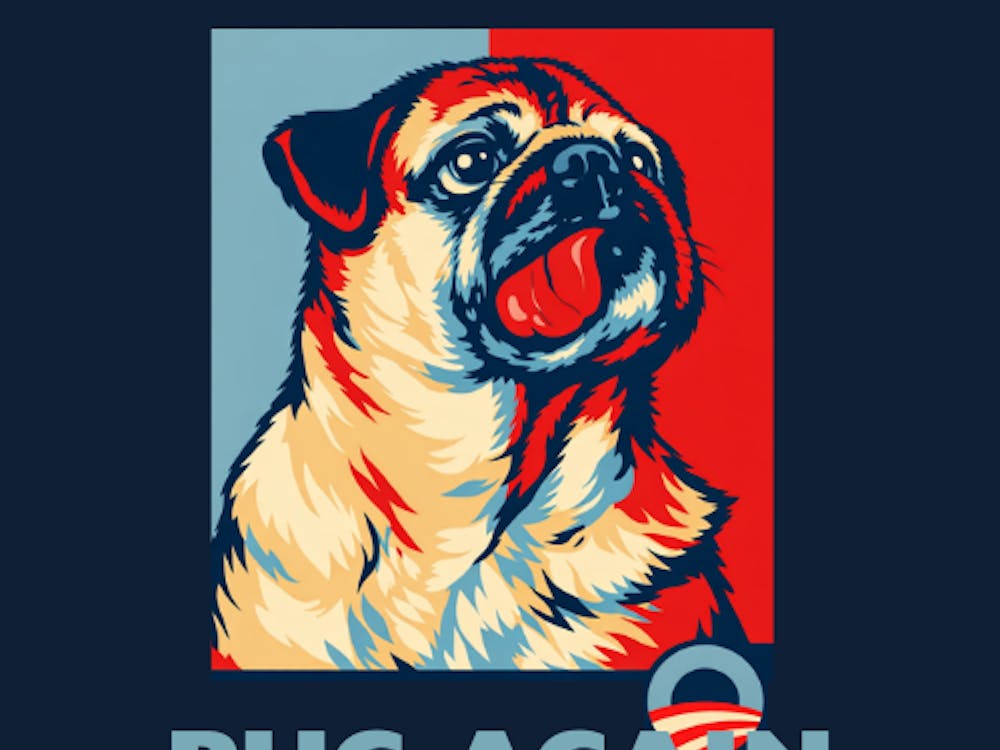Speaking to a full house, “eco-pirate” Paul Watson, the founder of the Sea Shepherd Conservation Society and co-founder of Greenpeace, asserted that predictions made about the environments of fish and other marine life were correct and the world is on the brink of environmental collapse.
In his talk at the University on Thursday, Watson focused on his past excursions in chasing poachers and hunters. He described boat chases and conflicts with governments and other activist agencies like Greenpeace.
Watson said that Sea Shepherd was among the most effective groups in recent years, working with Interpol as well as the governments of Mexico, South Africa, and Namibia to directly combat illegal hunting and poaching across the world’s oceans.
According to Watson, Sea Shepherd is a multinational, privately funded volunteer movement dedicated to preserving the world’s oceans and promoting a biocentric worldview, rather than an anthropocentric one. It advocates for placing the planet and biosphere ahead of human interests as “humans have existed for a fraction of a second on the timescale of this planet’s history.”
Furthermore, the organization operates a small navy of various ships, mostly ex-Coast Guard and private yacht vessels with which it pursues illegal fishing vessels.
Watson rebutted claims that his efforts were a form of eco-terrorism by saying that his endeavors have been nonviolent.
“The Sea Shepherds have never injured another human being, nor been injured on duty,” he said.
This track record, he argues, proves that the Sea Shepherds are a peaceful group, despite their Jolly Roger, a common symbol of pirates.

In recent years, the Sea Shepherds have removed hundreds of kilometers of illegal netting, produced video evidence of poaching around the world, and protected thousands of animals from being captured by fishermen, according to Watson.
While direct numbers are hard to find, in the Southern Ocean around Antarctica, Watson estimates that 6500 whales were saved as a result of the actions of his organization.
In the lecture, Watson recounted his many dangerous campaigns, featuring shootouts, drone strikes, and run-ins with various governments, including the Soviet Union and China. He also talked about the Sea Shepherds’ partnership with many smaller countries around the world, working in tandem with activists to stop poaching and fishers.
Watson, however, specifically noted that wealthier and more powerful nations were slower to respond, calling out French President Emmanuel Macron and Canadian Prime Minister Justin Trudeau for their inaction.

“The richer countries talk conservation but do very little to prevent their fleets from poaching abroad,” he said.
Watson concluded his talk by addressing how he and his group have used media narratives to get traction for their movement. Watson referenced his long history of sponsorships and endorsements from celebrities — including an especially controversial speech Pamela Anderson was asked to give on the behalf of Greenpeace which secured Russian governmental support of his movement.
The lecture, which was titled “Speaker Event: Paul Watson,” was sponsored by the Princeton Conversation Society. The talk was held yesterday at the Princeton University Art Museum at 7:30 p.m. on Thursday, April 18.








